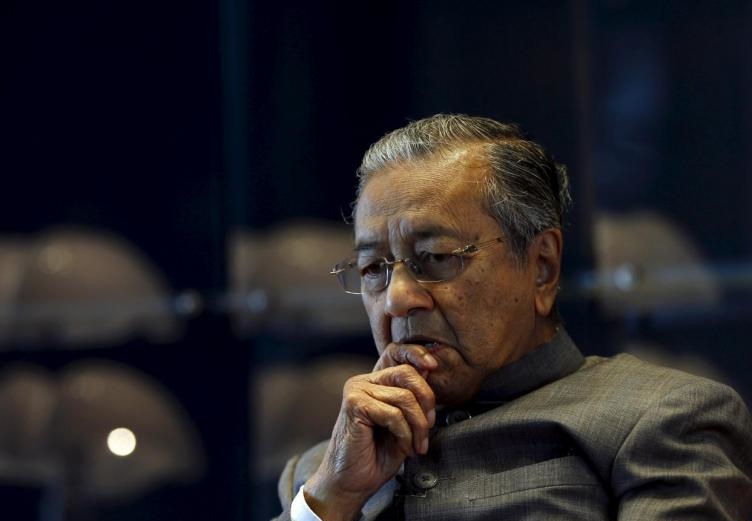Malaysian PM to scrap Singapore deal
May 30, 2018 | Expert Insights

Newly elected Malaysian Prime Minister Mahathir Mohamad, who came into power on a reformist agenda, has announced that Malaysia will scrap a 350-km high-speed rail (HSR) project with Singapore. The HSR deal was signed by the Najib government in December 2016.
Background
Malaysia is a federal constitutional monarchy located in Southeast Asia. It consists of Peninsular Malaysia and the states of Sabah and Sarawak. Malaysia was colonised by the British in the 19th Century. By 1819, the British had captured Singapore, Penang, and Malacca, and the three regions were directly ruled by Britian as the “Straits Settlements”. Malaysia gained independence from the British in 1957 and the Federation of Malaysia, comprising Malaysia, Sarawak, and Singapore, was officially declared in 1963.
Singapore left this federation in 1965, by mutual agreement, after widespread ethnic and political tensions. Today, Singapore is the only country in South-East Asia where ethnic Chinese make up a majority (74.3%) of the population. Malay citizens make up 13.4% of the population. As of 2017, Singapore has the 3rd highest GDP per capita in the world, and is 5th on the United Nation’s Human Development Index. Meanwhile Malaysia’s population includes a 61.7% Bumiputera population (includes Malays and indigenous people), while Chinese make up 20.8%.
The two nations have often had prickly relations. The two countries have disputes over deliveries of freshwater to Singapore, land reclamation works, bridge construction, and maritime boundaries in the Johor and Singapore Straits. In a 2008 dispute over territory in the Singapore Strait, the International Court of Justice awarded the Pedra Branca Islands to Singapore and the Middle Rocks to Malaysia. However, it did not rule on the disputed South ledge. In 2017, Malaysia applied for ownership of the South Ledge. However, they also have long-standing economic, cultural, and military ties. Earlier this year, the two countries announced plans for a new trading links between their stock markets.
Malaysia’s most recent elections took place on May 9th. In a surprise result, Prime Minister Najib Razak lost the polls to his former mentor Mahathir Mohammed’s “Alliance of Hope”. Najib’s loss also meant the downfall of the Barisan Nasional’s (National Front) 61-year hold on power. Read more on these elections here.
Analysis
Malaysian Prime Minister Mahathir Mohamad, has said that that Malaysia will end their 350-km high-speed rail (HSR) project with Singapore. The HSR deal was signed by the Najib government in December 2016. It would cut travel time between Malaysia and Singapore from 5 hours to 90 minutes. Companies from China, Japan and South Korea had expressed interest in the project.
The new PM has claimed that the project would cost Malaysia RM110 billion ($27.5 billion). The previous government had estimated the cost to be between RM50 to RM70 billion ($12.5-17.5 billion). Mahathir has maintained that the measure is part of his attempt to cut government debt. Lim Guan Eng, Malaysia’s new finance minister, has estimated that debt currently stands at approximately RM1 trillion ($250 million or 80.3% of GDP.)
"Singapore has not yet received any official notification from Malaysia. We had agreed to proceed with the HSR project based on mutual benefits and obligations set out in the HSR bilateral agreement,” a Singapore Ministry of Transport spokesperson said. Earlier this year, Singaporean Prime Minister Lee Hsien Loong had told then Prime Minister Najib that he wanted HSR to be unaffected by political change. There was a "binding agreement" that must be abided by "whoever is the government on either side,” Lee said at the time.
After winning the elections earlier this month, the Pakatan Harapan government had also said that it would review all mega projects instituted by the previous government, which had allegedly been involved in a financial scandal. Mahathir has said that he may also review or renegotiate a number of Chinese projects. This could include the East Coast Rail Link (ECRL), which is aimed at connecting the South China Sea at the Thai border with Straits of Malacca shipping routes. Former Prime Minsiter Najib had been a major proponent of China’s Belt and Road Initiative. According to one estimate, Malaysia has signed $34 billion worth of infrastructure projects under the BRI.
However, some experts believe that Mahathir may not pull out of too many Chinese projects. “Most likely there will be some cosmetic changes to existing contracts, which in their essentials will proceed as before,” said Udith Sikand, analyst at research firm Gavekal.
Malaysia-Singapore ties during Mahathir’s previous term from 1981-2003 were chilly, and have been described by opposition as a time of “confrontational diplomacy.” However, Mahathir came into power this year on a reformist agenda. He has stated that he intends to cut the salaries of cabinet ministers by 10%, and scrap a Goods and Services Tax to ease living costs. The new communication minister has promised to abolish the “fake news” law imposed by the Najib administration, which was widely criticised for restricting press freedom. In an interview with the Financial Times, Mahathir stressed on the importance of strengthening democracy. “I want to ensure that the country becomes once again democratic,” he said. “At the same time, we have to reduce the capacity for abuse by the prime minister.”
Assessment
Our assessment is that Mahathir’s focus is primarily on domestic issues such as the high cost of living and corruption. Therefore Mahathir will want to demonstrate to his people that he is indeed cutting expenditure and focussing on the needs of the people. He may be willing to accept the risk of souring ties with other countries by scrapping collaborative projects.








Comments